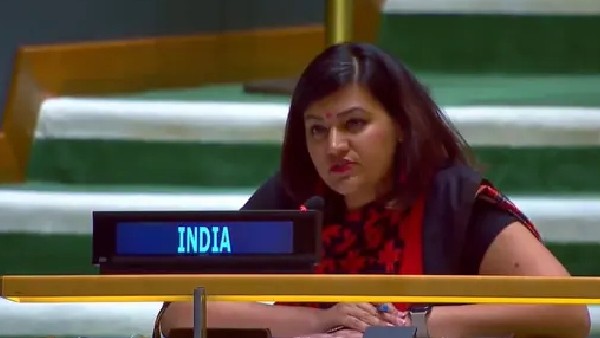
India delivered a scathing rebuttal to Pakistan Prime Minister Shehbaz Sharif’s address at the United Nations General Assembly, accusing Islamabad of glorifying terrorism and distorting facts. Exercising its right of reply, Indian diplomat Petal Gahlot condemned Sharif’s remarks as “absurd theatrics” and reminded the global forum of Pakistan’s history of harboring terrorists, including Osama bin Laden.
India’s Fierce Response
“Mr President, this assembly witnessed absurd theatrics in the morning from the Prime Minister of Pakistan, who once again glorified terrorism that is so central to their foreign policy,” Gahlot stated. She emphasized that “no degree of drama and no level of lies can conceal the facts,” pointing to Pakistan’s shielding of the Resistance Front—a terror outfit allegedly responsible for the April 2025 massacre of tourists in Jammu and Kashmir.
Gahlot further underscored Pakistan’s duplicity in the global fight against terrorism. “Let us recall that it sheltered Osama bin Laden for a decade, even while pretending to partner in the war against terrorism,” she said, adding that Pakistani ministers have recently admitted to operating terrorist camps for decades.
Sharif’s Claims and India’s Counter
Earlier, Shehbaz Sharif used his UNGA speech to accuse India of unprovoked aggression and targeting civilians following the Pahalgam terror attack. He claimed Pakistan shot down seven Indian fighter jets and praised his military’s “stunning professionalism.” India dismissed these claims as fabrications aimed at political gain.
Sharif also raised the Kashmir issue and accused India of violating the Indus Water Treaty. India responded by highlighting Pakistan’s long-standing tradition of exporting terrorism and its failure to take accountability for cross-border violence.
Global Implications
India’s strong rebuttal signals a deepening diplomatic rift and a hardening stance against Pakistan’s international narrative. As tensions escalate, the UNGA has once again become a battleground for competing truths and unresolved grievances between the nuclear-armed neighbors.
